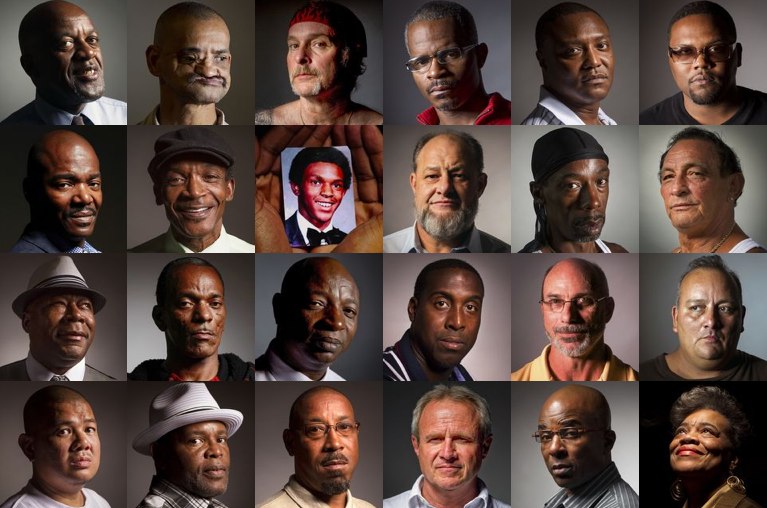
Billy Smith II (Houston Chronicle)
Tony Freemantle, Houston Chronicle
If it could happen to Michael Morton, it could happen to anyone.
With no physical evidence linking Morton to the crime and only a wildly implausible hypothesis for why he committed it, the district attorney of tough-on-crime Williamson County convinced a jury in February 1987 that Morton had bludgeoned his young wife to death in their suburban Austin home.
He was sentenced to life in prison and served nearly 25 years before he managed to prove he didn’t do it. Relative to the millions serving time in U.S. prisons, the number of people exonerated for crimes they did not commit is small. But it continues to grow. Most troubling is that this relatively small number of exonerations points to a potentially huge unseen number of people who have been wrongfully convicted.
False convictions occur for a number of reasons: Victims identify the wrong person; prosecutors withhold exculpatory evidence from the accused; false or misleading forensic evidence points to the wrong person; defendants receive inadequate legal representation; witnesses perjure themselves.
In May, the National Registry of Exonerations, a joint project of the University of Michigan Law School and the Center on Wrongful Convictions at Northwestern University School of Law, released its first report analyzing 873 exonerations between January 1989 and February 2012. (Since then, the number of identified exonerations in the registry has grown to 1,050, and more are added almost daily.)
In the 873 cases that were studied, the registry found the most common reasons for wrongful conviction were perjuryor false accusation (51 percent), mistaken witness identification (43 percent) and official misconduct (42 percent).
Ninety-three percent of those exonerated were men, 50 percent were black, 38 percent were white and 11 percent were Hispanic. DNA evidence helped clear 37 percent of them. In total they spent more than 10,000 years in prison for crimes they did not commit.
While stark and sobering in and of themselves, the statistics don’t begin to describe the human tragedy of wrongful convictions.
Read the full story at Chron.com
How to Download “A Human Tragedy” for your E-Book Reader (Chron.com)
LOCAL AREA HEADLINES:
- Community mourns loss of Katy hostage (KPRC 2 News)
- Local law enforcement officials see risks in arming teachers (Houston Chronicle)
- Mental Health Advocates Hope For More Funding This Session (KUHF Public Radio)
- MLK Jr. Remembered In Kids Speeches For Annual Gardere Oratory Competition (KUHF Public Radio)
- HISD trustee’s deposition reveals Super Bowl trip, lavish meals (Houston Chronicle)
- Sugar Land forming citizen bond advisory committee (KHOU 11 News)
- High risk sex offender eludes custody, threatens to rape again (KRIV 26 News)
- Houston getting new statue to honor MLK (KTRK 13 News)
STATE, NATION & WORLD
- Texas gun purchase mental-health records a patchwork (Chron.com)
- Corporate welfare for Texas cancer research (Houston Chronicle)
- Church and gun enthusiasts compete for weapons (AP)
- How New Texas Water Supplies Could Help Both Farmers and Cities (State Impact Texas)
- Obama speech sets stage for looming policy fights (AP)
- Civil rights icon reflects on Obama-Lincoln-MLK ties (USA Today)
- Report: Teen charged in family massacre planned more (USA Today)
- Gun Control Debate Takes Mexico Into Account (Texas Tribune)
